Discover! Social Studies Curriculum
Grade 1
Discover! Social Studies Grade 1 teaches about families, cultures, the world around them, leaders and laws within a community, and people’s work within a community. The student worktext includes activities, instruction, and extensions to appeal to all learning styles, and the comprehensive instructor guide provides support and takes the guesswork out of lesson planning.
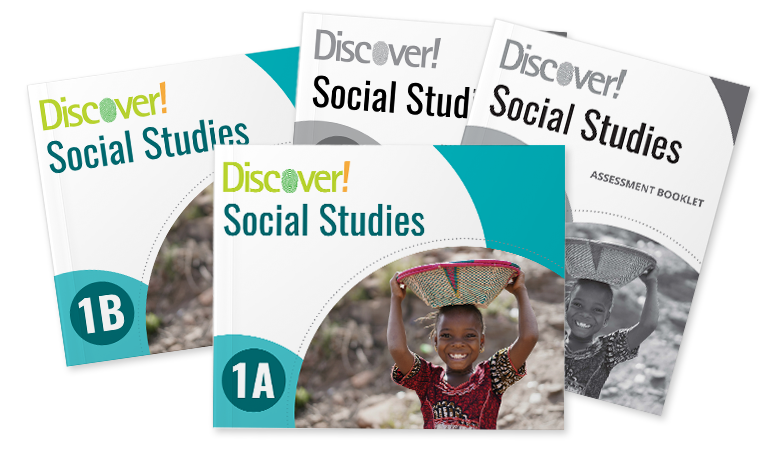
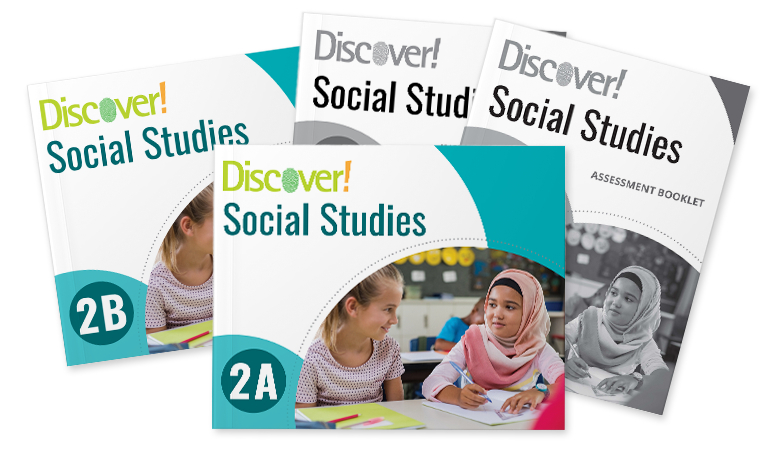
Grade 2
Discover! Social Studies Grade 2 students learn about geography, maps, life in a community, resources, jobs and income, and environments around the world. Lessons incorporate essential vocabulary, writing activities, and reading opportunities. The student worktext includes activities, instruction, and extensions to appeal to all learning styles. The comprehensive instructor guide provides support and takes the guesswork out of lesson planning.
Grade 3
Discover! Social Studies Grade 3 teaches about different regions of the world, human impact, travel, trade, our environment, citizenship, the role of government, and how government works. Lessons incorporate essential vocabulary, writing activities, and reading opportunities. Student worktext includes activities, instruction, and extensions to appeal to all learning styles. The comprehensive instructor guide provides support and takes the guesswork out of lesson planning.
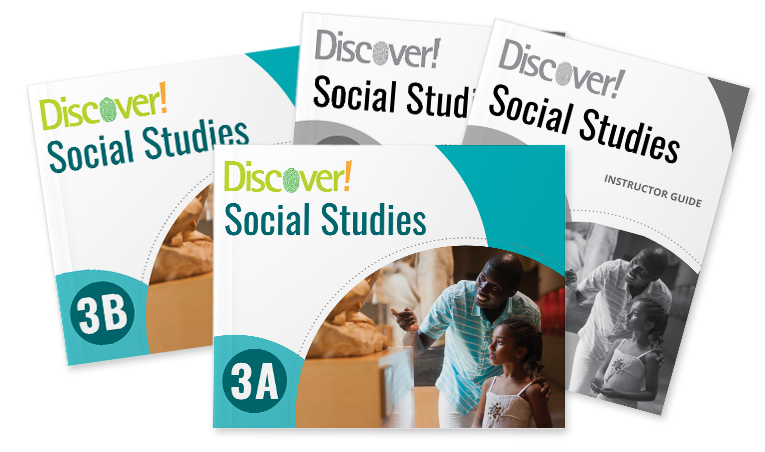
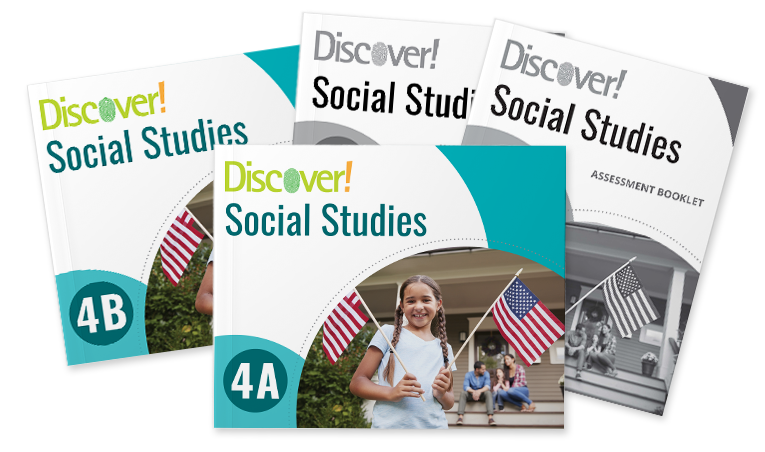
Grade 4
Discover! Social Studies Grade 4 teaches students about key moments in history from the 1600s to 1700s, American Democracy, growth in the East, expansion in the West, slavery, and the Civil War. Lessons incorporate essential vocabulary, writing activities, and reading opportunities. Student worktext includes activities, instruction, and extensions to appeal to all learning styles. The instructor guide provides support and takes the guesswork out of lesson planning.
Grade 5
Discover! Social Studies Grade 5 teaches students about geography and the cultures of Africa, Asia, Central America, the Caribbean, and Europe. Student worktext includes activities, instruction, and extensions to appeal to all learning styles. The instructor guide provides support and takes the guesswork out of lesson planning.
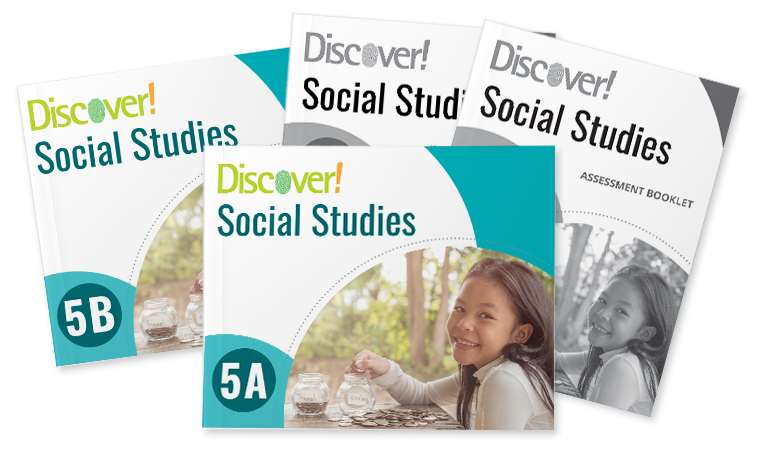
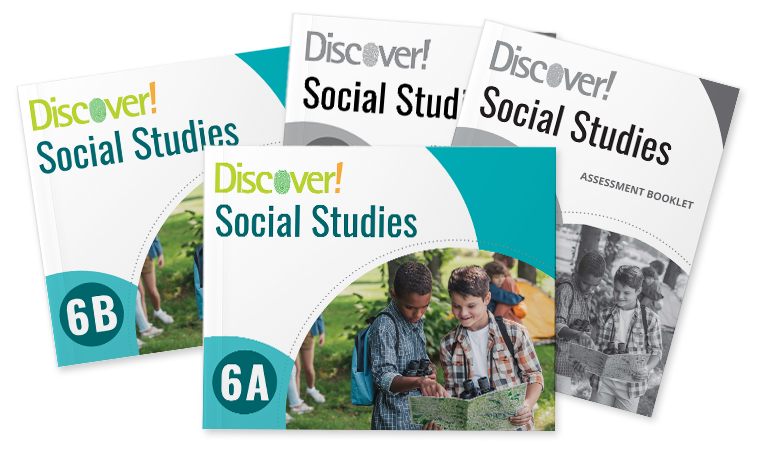
Grade 6
Discover! Social Studies Grade 6 teaches world history: early civilizations, ancient Egypt, ancient Israel, ancient India, and ancient China. Student worktext includes activities, instruction, and extensions to appeal to all learning styles. The instructor guide provides support and takes the guesswork out of lesson planning.
